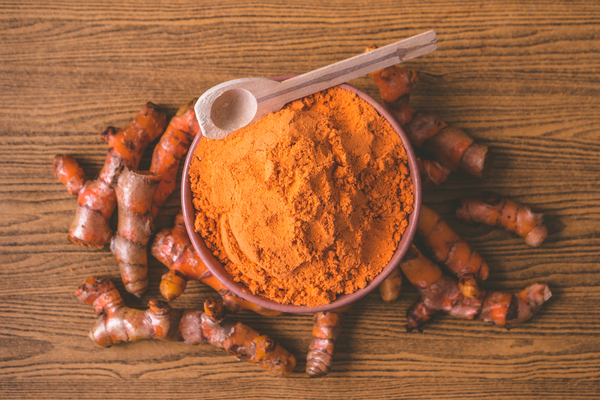Spices

Do you love adding spices to your food and wonder whether you can also give your dog some of them? Spices are parts of plants that are used for their flavor or their effect. They can be used fresh, dried or ground. Spices have many health-promoting properties, but not all of them are suitable for dogs. In this article you will find out which spices you can give your dog and which are better not.
Benefits of spices for dogs
Spices can aid your dog's digestion, strengthen his immune system, reduce inflammation or ward off parasites. Some spices also have an antibacterial, antiviral or antifungal effect. In addition, spices can make dog food tastier and more varied. Here are some examples of spices that you can give your dog in small quantities:
- Turmeric: Turmeric contains the active ingredient curcumin, which has anti-inflammatory and antioxidant effects. Turmeric can help with arthritis, gastrointestinal complaints or skin problems. You can mix a pinch of turmeric into your dog's food or give him a turmeric paste made from turmeric, coconut oil and pepper.
- Ginger:Ginger is a well-known household remedy for nausea and vomiting. It can also promote blood circulation and relieve pain. You can give your dog a small piece of fresh ginger or add some ginger tea to the water.
- Cinnamon:Cinnamon has a warming and calming effect. It can regulate blood sugar levels and improve insulin sensitivity. Cinnamon can also help with respiratory diseases and gingivitis. You can sprinkle a pinch of cinnamon in your dog's food or give him a cinnamon star as a treat.
- Parsley: Parsley is rich in vitamins and minerals. It can support kidney function and freshen breath. Parsley also has a diuretic and detoxifying effect. You can add some fresh or dried parsley to your dog's food or offer him a parsley broth as drinking water.
Disadvantages of spices for dogs
Not all spices are suitable for dogs. Some can cause stomach irritation, diarrhea or vomiting. Others can cause allergic reactions or even be toxic. Here are some examples of spices that you should not give your dog:
- Garlic: garlic belongs to the onion family and is toxic to dogs. It contains sulphur compounds that can damage the red blood cells. This can lead to life-threatening anemia. Garlic is dangerous for dogs in any form - fresh, dried or pressed.
- Nutmeg: Nutmeg contains the active ingredient myristicin, which has a hallucinogenic and nerve-damaging effect. Nutmeg can cause convulsions, tremors, palpitations or collapse in dogs. Even small amounts can be fatal.
- Salt: Salt is not a spice as such, but is often used as a seasoning. Salt can lead to an increased feeling of thirst, increased urine excretion and water intoxication in dogs. Too much salt can also increase blood pressure or put a strain on the kidneys.
Spices can have a number of benefits for dogs, including aiding digestion, boosting the immune system and having anti-inflammatory effects. Examples of suitable spices include turmeric, ginger, cinnamon and parsley. However, spices should be used in moderation as not all are safe for dogs. Harmful spices such as garlic, nutmeg and excessive salt should be avoided as they can cause health problems.
Properties 2
Are you looking for other ingredients with a specific property?
Just click on them to find more.
If you notice any signs of hypersensitivity or poisoning in your dog, you should see your vet immediately. We are not a substitute for a vet, but we try to be as accurate as possible. Every dog reacts differently and we recommend you get a second opinion or consult your vet if in doubt.
Stay healthy and take good care of your four-legged friend!😊
Similar to Spices
Turmeric belongs to the ginger family and grows in South Asia. The root is dried and ground to obtain the familiar yellow powder. Turmeric contains an active ingredient called curcumin, which is...
Cinnamon is the dried bark of various tree species from the laurel family. There are various types of cinnamon, which differ in taste, color and coumarin content. Coumarin is a natural flavoring...
Parsley is a plant from the umbellifer family, which also includes carrots, celery and fennel. It has green, curly or smooth leaves with an aromatic scent. Parsley originates from the Mediterranean...
Ginger is a plant from the ginger family. The root tuber is used as a spice or medicine. It has a pungent taste and a spicy smell. Ginger contains many valuable ingredients, such as gingerol, which...



